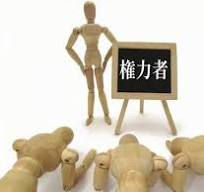Will fireflies emerge from the rotting grass? --The role of the 24 Solar Terms and the 72 Seasons--
- 弓長金参
- Nov 16, 2024
- 3 min read
Updated: Jul 7, 2025
The rotting grass turns into a firefly. It is one of the 24 Solar Terms and 72 Seasons.
This word refers to the rainy season around early June, which corresponds to the period BoShu.
24 Solar Terms represent each period of the year divided into 24 equal parts, these include the familiar ShunBun, GeShi, ShuBun, ToJi. 72 Seasons further subdivides each of the 24 Solar Terms into 3 equal parts, which are also expressed using words that match the season.

The rotting grass turns into a firefly is a word that expresses the season when fireflies float in the river.
Still, what does the rotting grass turns into a firefly mean?
It was related to the ancient Chinese way of thinking about all things. The ancient Chinese believed that animals and plants could transform into other things. In early summer, when there is plenty of rain, the grass grows and before you know it, fireflies are flying around the river.
In reality, the firefly eggs laid on the riverbank hatch, and the larvae that grow in the river become pupae and metamorphose into firefly. The ancient Chinese, who did not observe the ecology of fireflies, thought that grass wet with rain and dew could turn into fireflies. There is a tendency in ancient Chinese thought to explain everything and the world through images first, rather than through scientific and objective observation.

Similarly, butterflies also shed flowers, especially beautiful petals which transform into butterflies. Therefore, they thought that butterflies have beautiful patterns.
In fact, even in ancient China, there were scholars who carefully observed the ecology of plants and animals and stated that insects do not change from flowers as the legend goes, but the public's image remained unchanged and it was common knowledge that insects were born from flowers until modern times.
Even in Japan said to maggots are gushing out, the maggots of fly larvae do not originate from eggs, but are similar to those captured in images that occur naturally.

The 24 Solar Terms and the 72 Seasons are not just words that have been passed down from ancient times, but are extremely important tools that are closely related to daily life.
In ancient China, there was no accurate calendar and of course there was no weather forecast. For the ancient Chinese, who were mainly self-sufficient through farming, if they sowed, harvested, or prepared for winter at the wrong time, their crops would not bear fruit and their food reserves would run out, putting them at risk of starving to death. The 24 Solar Terms and the 72 Seasons are important words that tell they the timing of necessary work in each season.

The 24 Solar Terms and 72 Seasons are based on the climate and features of the middle reaches of the Yellow River, where Chinese civilization was born.
It is an expression that is clearly in line with the continental climate, which has large seasonal changes, with spring around April and autumn around October, and summer and winter repeating at other times of the year.
It was introduced to Japan around the 6th century and became established as a word to express the seasons in Japan.
On the other hand, there is a discrepancy between Japan's climate which has four distinct seasons and the 24 Solar Terms and 72 Seasons, such as the beginning of autumn at the height of summer in early August. In Japan which has an oceanic climate, the expressions of the 24 Solar Terms and 72 Seasons of the continental climate do not match.

However, if we pay attention to the seasonal feeling each day, we will notice that in the heat of midsummer, the cicadae's cries have become quieter or red dragonflies have begun to fly, and the mornings and evenings have become slightly cooler. It is true that we can definitely feel the footsteps of autumn. A uniquely Japanese sensibility was also developed in which people felt the emotions of the subtle changes in the seasons and expressed them through Waka and Haiku.

